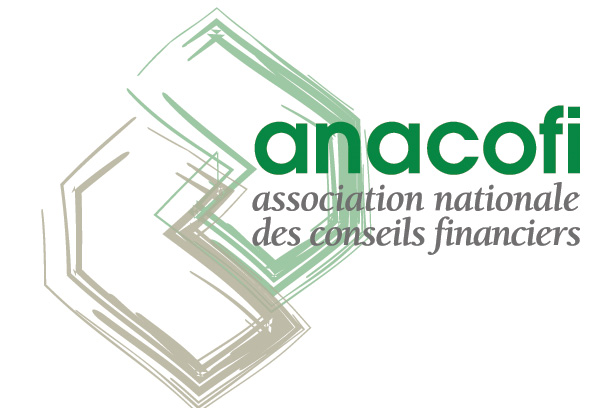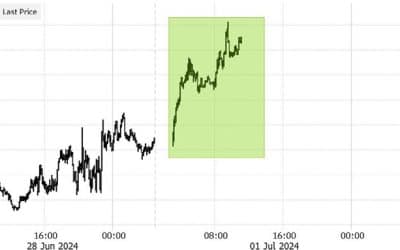If the person contacting you is not in France, he is passporting his rights, and is allowed to, but is he covered by French civil liability and does he know anything about French laws…
Example : does a Spanish adviser know anything about French civil Law and Assurance vie ??? What is your opinion considering the below and now you know a bit more about France and how it works.. and how complexes it is.
Writing an article on the different stages a French CIF (Conseiller en Investissements Financiers) must follow to be in line with regulations is a valuable topic, as it can help inform individuals and businesses about the legal and regulatory requirements in the financial services industry. Below are the key stages you can explain in your article:
1. Registration and Qualifications:
o A French CIF is required to obtain the necessary qualifications and certifications.
These typically include a degree in finance, economics, or related fields, as well as completing relevant professional exams, such as the AMF (Autorité des marchés financiers) certification.
2. Professional Liability Insurance:
o CIFs are required to have professional liability insurance in place to protect their clients in case of errors, omissions, or negligence.
3. Membership in a Professional Association:
o CIFs often join a professional association, such as the ANACOFI (Association Nationale des Conseils Financiers), which sets ethical standards and provides a platform for networking and knowledge sharing.
4. Know Your Customer (KYC) Process:
o CIFs must conduct a thorough KYC process to understand their clients’ financial situation, objectives, and risk tolerance. This step is critical for providing suitable financial advice.
5. Risk Profiling and Investment Strategy:
o CIFs should assess the client’s risk profile and develop an investment strategy tailored to their needs and objectives. This strategy should be in line with the client’s risk tolerance.
6. Compliance with Investment Restrictions:
o CIFs need to ensure that the investment recommendations and strategies comply with applicable regulations and restrictions, such as those related to certain types of assets or investor profiles.
7. Client Agreement and Disclosure Documents:
o CIFs should provide clients with clear, written agreements and disclosure documents that outline the services to be provided, fees, and any potential conflicts of interest.
8. Ongoing Monitoring and Reporting:
o CIFs are responsible for regularly monitoring client portfolios and providing periodic reports on their performance. They should also offer periodic reviews of the client’s financial goals.
9. Record-Keeping and Documentation:
o Maintaining comprehensive records of client interactions, agreements, and investment decisions is crucial for compliance and dispute resolution.
10. AML and Compliance Requirements:
o Adherence to Anti-Money Laundering (AML) regulations and compliance with the latest financial industry rules is essential for CIFs. 11. Continuing Education:
o To stay current with industry developments and regulatory changes, CIFs must engage in ongoing professional development and education.
12. Ethical Conduct and Code of Ethics:
o Adherence to a strict code of ethics is paramount, with an emphasis on acting in the client’s best interest and avoiding conflicts of interest.
13. Complaint Handling:
o CIFs should have a procedure in place for addressing client complaints and resolving disputes in a fair and timely manner.
14. Regulatory Reporting and Audits:
o CIFs may be subject to periodic audits by regulatory authorities to ensure compliance with financial regulations. 15. Penalties and Sanctions:
o Discuss the potential penalties and sanctions that CIFs may face if they fail to meet regulatory requirements.
By covering these stages, your article can provide a comprehensive overview of the regulatory framework that French CIFs must navigate to maintain compliance and offer sound financial advice to their clients.
When working as a financial adviser, it is crucial to provide your client with a set of documents to ensure transparency, compliance, and clarity throughout the advisory process. Here’s a breakdown of the key documents you should provide at each stage:
1. Introductory Document:
o Client Information Document: This document should include your firm’s contact details, the services you offer, and a brief explanation of how you are regulated. It should also outline any potential conflicts of interest and the cost of your services.
2. Letter of Engagement:
o Client Agreement or Engagement Letter: This document formalizes the relationship between you and the client. It outlines the scope of services you will provide, the responsibilities of both parties, and the terms and conditions of your engagement, including fees and payment terms.
3. Recommendations and Solutions:
o Investment Proposal: This document outlines the specific investment recommendations and solutions you are proposing to the client based on their financial goals, risk tolerance, and other relevant factors. It should include the rationale for each recommendation.
4. Fees:
o Fee Schedule or Fee Disclosure Document: Clearly detail all fees and charges the client will incur, including your advisory fees, transaction costs, and any third-party fees. Ensure that the client fully understands how they will be charged for your services.
5. Suitability Report:
o Suitability Report or Investment Suitability Statement: This report justifies why the recommended investments are suitable for the client based on their individual circumstances, goals, and risk tolerance. It should also address any potential risks or limitations of the proposed solutions.
6. Mandate to Pass Order on Behalf:
o Trading Authorization : If the client authorizes you to place orders on their behalf, you should have a document in place that outlines the extent of this authority and any specific instructions related to trading.
It’s important to ensure that these documents are written clearly and in a language that the client can understand. Encourage your client to read and ask questions about the documents to ensure they have a full understanding of the services being provided, associated costs, and potential risks.
Additionally, be prepared to provide updated versions of these documents if there are changes in the client’s financial situation, goals, or investment strategy. Regular communication and documentation are essential to maintaining a transparent and compliant advisory relationship.
In France, it is generally considered best practice and in accordance with regulatory guidelines to refrain from charging clients for financial advisory or investment services before signing a formal “Lettre de Mission” or engagement letter. This engagement letter serves as a contractual agreement between the financial adviser (Conseiller en Investissements Financiers or CIF) and the client, outlining the scope of services, terms, conditions, and fees.
Charging clients before signing the engagement letter can create a lack of transparency and raise potential issues related to consumer protection and regulatory compliance. The engagement letter typically includes important information, such as:
- A clear description of the services to be provided.
- The responsibilities and obligations of both the financial adviser and the client.
- The fee structure and any other charges associated with the services.
- Information about how conflicts of interest will be managed.
- The client’s right to withdraw from the agreement.
- The duration of the engagement.
By having the engagement letter in place, both parties have a mutual understanding of the terms and conditions, and this can help prevent misunderstandings or disputes in the future. Furthermore, it demonstrates a commitment to transparency and compliance with regulatory standards.
It’s important to note that financial regulations may evolve, so it is advisable to consult with the relevant regulatory authority, such as the Autorité des marchés financiers (AMF) in France, to ensure that you are adhering to the most current rules and best practices in your financial advisory services.
ANACOFI (Association Nationale des Conseils Financiers) is a professional association in France that represents financial advisers, including Conseillers en Investissements Financiers (CIFs). The primary purpose of ANACOFI is to promote the interests of its members, provide a platform for networking and knowledge sharing, and establish ethical standards within the financial advisory industry.
CIFs and other professionals in the financial services sector may choose to become members of ANACOFI to benefit from its services, including access to industry updates, professional development opportunities, and a supportive community.
In addition to ANACOFI, there are other associations in France that CIFs and financial professionals can consider joining. These associations may offer various services and resources to their members. Some of these associations include:
- CNCGP (Chambre Nationale des Conseils en Gestion de Patrimoine): The CNCGP is a national chamber of wealth management advisors in France. It focuses on representing wealth managers and financial planners, and it works to promote high ethical and professional standards.
- FNAIM (Fédération Nationale de l’Immobilier): While primarily associated with real estate professionals, FNAIM also has a financial division (FNAIM Finance) that represents professionals involved in real estate financing and investment.
- SFAF (Société Française des Analystes Financiers): The SFAF represents financial analysts and provides a platform for professional development and networking among financial analysts and experts in the field.
- AGASEF (Association des Gestionnaires Administrateurs de Sociétés d’Epargne et de Retraite, Gestionnaires de Patrimoine): AGASEF is an association focused on professionals involved in savings and retirement plans, as well as wealth management.
- CNCIF (Chambre Nationale des Conseils en Investissements Financiers): This chamber represents CIFs specifically and aims to promote their interests and uphold professional standards within the CIF profession.
It’s important to research and consider the specific focus and benefits of each association when deciding which one to join. Membership in these associations can provide professionals with access to valuable resources, industry insights, and networking opportunities while fostering compliance with ethical and regulatory standards. Additionally, being part of an association can enhance one’s credibility and professionalism within the financial services sector in France.

 HELPLINE:
HELPLINE: 



